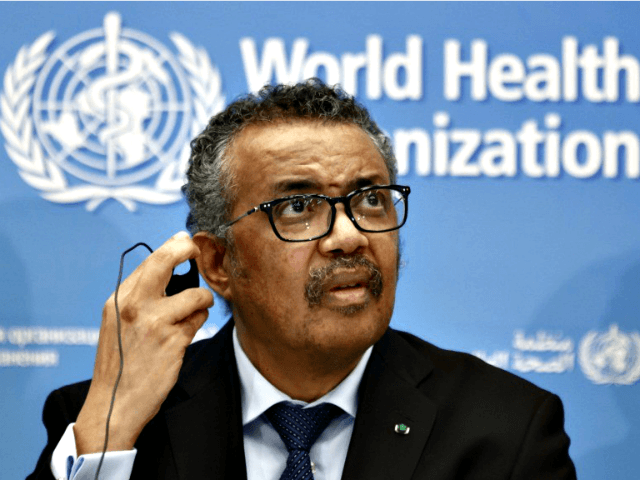World Health Organization (W.H.O.) officials will meet Friday to address concerns regarding the latest coronavirus variant on the rise in South Africa.
As of now, the variant is named B.1.1.529, but the W.H.O.’s technical working group will discuss whether B.1.1.529 should be assigned a name from the Greek alphabet, according to Fortune. If so, the variant will be most likely be named “Nu.”
The variant was first discovered in Botswana and has been making its way through South Africa, including Johannesburg, NPR reports, citing the Guardian.
During an online press briefing on Thursday, South African Health Minister Joe Phaahla announced that the country had seen a substantial rise in infections, per the Associated Press.
“Over the last four or five days, there has been more of an exponential rise,” he stated and added that B.1.1.529 seems to be the catalyst for the spike.
South Africa had been reporting just over 200 new cases a day for a stretch before the new variant came to light, per the Associated Press. In the past week, new daily cases have soared. On Wednesday, the country reported upwards of 1200 new cases, and on Thursday, it documented 2,465 new cases.
The variant reportedly carries an array of mutations which is a central concern among health officials.
“This new variant has many, many more mutations,” said Tulio de Oliviera of South Africa’s Network for Genomic Surveillance, per the AP. He added that the variant is capable of over 30 mutations to the spike protein which influences transmissibility.
“We can see that the variant is potentially spreading very fast. We do expect to start seeing pressure in the healthcare system in the next few days and weeks,” he continued.
Dr. Maria Van Kerhove, an epidemiologist who serves as the W.H.O.’s coronavirus technical lead, said researchers will work together in the coming weeks to “understand what these mutations are,” according to Fortune.
The United Kingdom has already canceled flights from six southern African countries and added them to the “red list” for travelers, NPR reports.
Officials are worried that the variant “may be more transmissible” than the Delta strain and the possibility that “the vaccines that we currently have may be less effective” on B.1.1.529, said United Kingdom (U.K.) Health Secretary Sajid Javid.

COMMENTS
Please let us know if you're having issues with commenting.